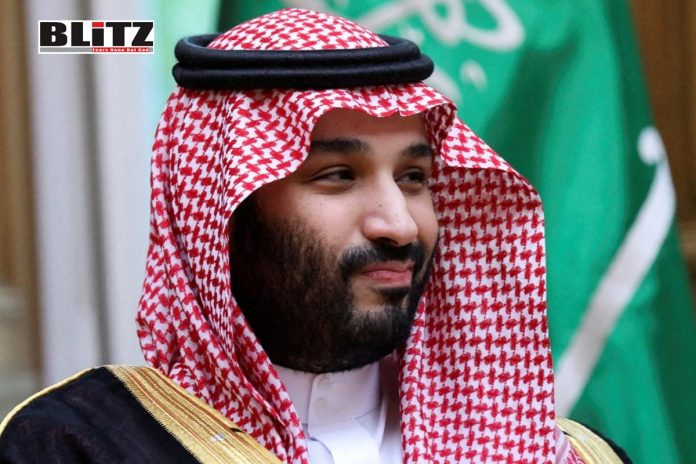In the ever-sprouting landscape of geopolitics, Saudi Arabia has embarked on a transformative journey under the visionary leadership of Crown Prince Mohammed bin Salman (MBS). Over the past three years, the kingdom’s foreign policy has undergone a profound shift, transitioning from confrontational postures to one of constructive engagement and mediation. This diplomatic renaissance not only reflects Saudi Arabia’s strategic repositioning but also underscores MBS’s commitment to steering the nation towards a post-oil future while solidifying its role as a key player on the global stage.
The catalyst for this diplomatic metamorphosis lies in a confluence of factors that compelled Riyadh to reassess its approach to foreign affairs. Diminished confidence in traditional security assurances, coupled with the imperative to implement ambitious economic reforms outlined in Vision 2030, prompted Saudi Arabia to pivot towards conciliation rather than confrontation.
Additionally, the humanitarian and strategic costs of protracted military interventions, such as the conflict in Yemen, underscored the need for a more nuanced and pragmatic foreign policy strategy.
A pivotal moment in this diplomatic recalibration occurred in September 2019 when a devastating attack on Saudi oil facilities, attributed to Iran, underscored the vulnerability of the kingdom’s energy infrastructure. Rather than opting for retaliatory measures, Riyadh initiated indirect talks with Tehran, signaling a willingness to de-escalate tensions and pursue dialogue as a means of conflict resolution. This marked a departure from previous years characterized by assertive but ultimately futile posturing.
The culmination of Saudi Arabia’s newfound diplomatic approach was evident in the historic Al-Ula summit in January 2021, where a breakthrough agreement ended the blockade of Qatar, fostering reconciliation within the Gulf Cooperation Council (GCC). Subsequent efforts to forge unity among GCC members and engage in constructive dialogue with regional powers like Turkey exemplify Riyadh’s commitment to fostering stability and cooperation in the Middle East.
Central to Saudi Arabia’s diplomatic resurgence is its embrace of multilateralism and strategic partnerships beyond its traditional allies. By leveraging its economic prowess and geopolitical influence, Riyadh has expanded its engagement with emerging powers like China and Russia while actively participating in forums such as the G20 to shape global agendas on issues ranging from energy policy to climate change.
Moreover, Saudi Arabia’s diplomatic endeavors extend beyond traditional state-to-state interactions, encompassing a robust agenda of soft diplomacy and conflict mediation. The kingdom’s initiatives to foster dialogue and facilitate peace processes in conflict zones such as Ukraine and Sudan underscore its evolving role as a mediator and peacemaker in regional and international affairs.
Despite these diplomatic strides, Saudi Arabia’s foreign policy trajectory remains complex and dynamic. While MBS is resolute in propelling the kingdom towards a diversified economic future, Riyadh’s alignment with global powers like China raises questions about its long-term strategic alliances and geopolitical orientation. Moreover, the kingdom’s continued involvement in conflicts such as Yemen poses challenges to its aspirations for regional stability and credibility as a peace broker.
Looking ahead, Saudi Arabia faces the formidable task of balancing its ambitions for economic reform and regional leadership with the imperatives of geopolitical realities and domestic stability. As the kingdom navigates this intricate landscape, the role of MBS as a visionary leader and architect of Saudi Arabia’s diplomatic renaissance will be pivotal in shaping the nation’s trajectory in the years to come.
Saudi Arabia’s diplomatic resurgence under Mohammed bin Salman heralds a new era of engagement and pragmatism in the kingdom’s foreign policy. By embracing dialogue, mediation, and multilateralism, Riyadh seeks to assert its influence on the global stage while fostering stability and cooperation in its immediate neighborhood. While challenges persist, the kingdom’s commitment to charting a course towards a post-oil future underscores its determination to adapt and thrive in an ever-changing geopolitical landscape.




